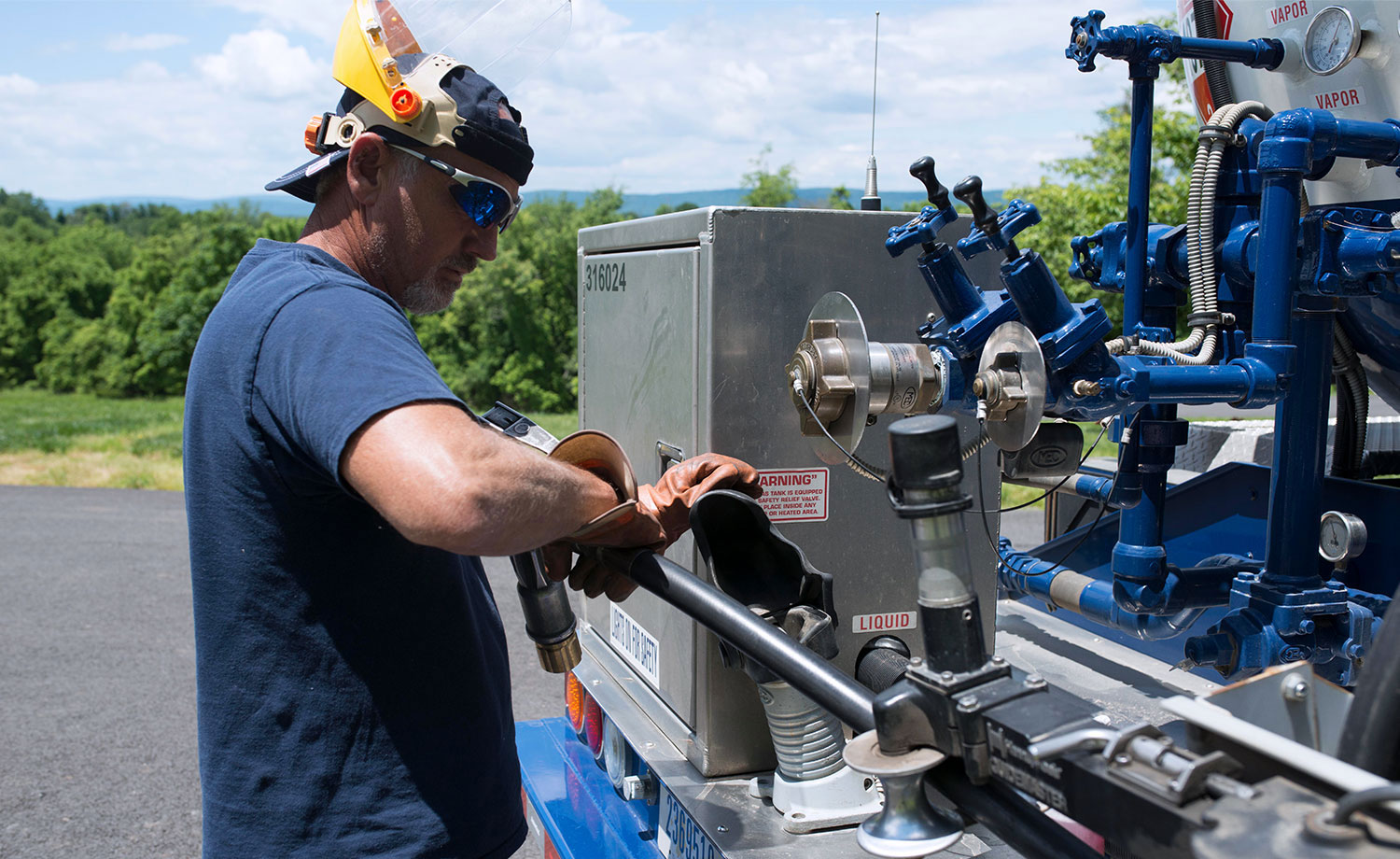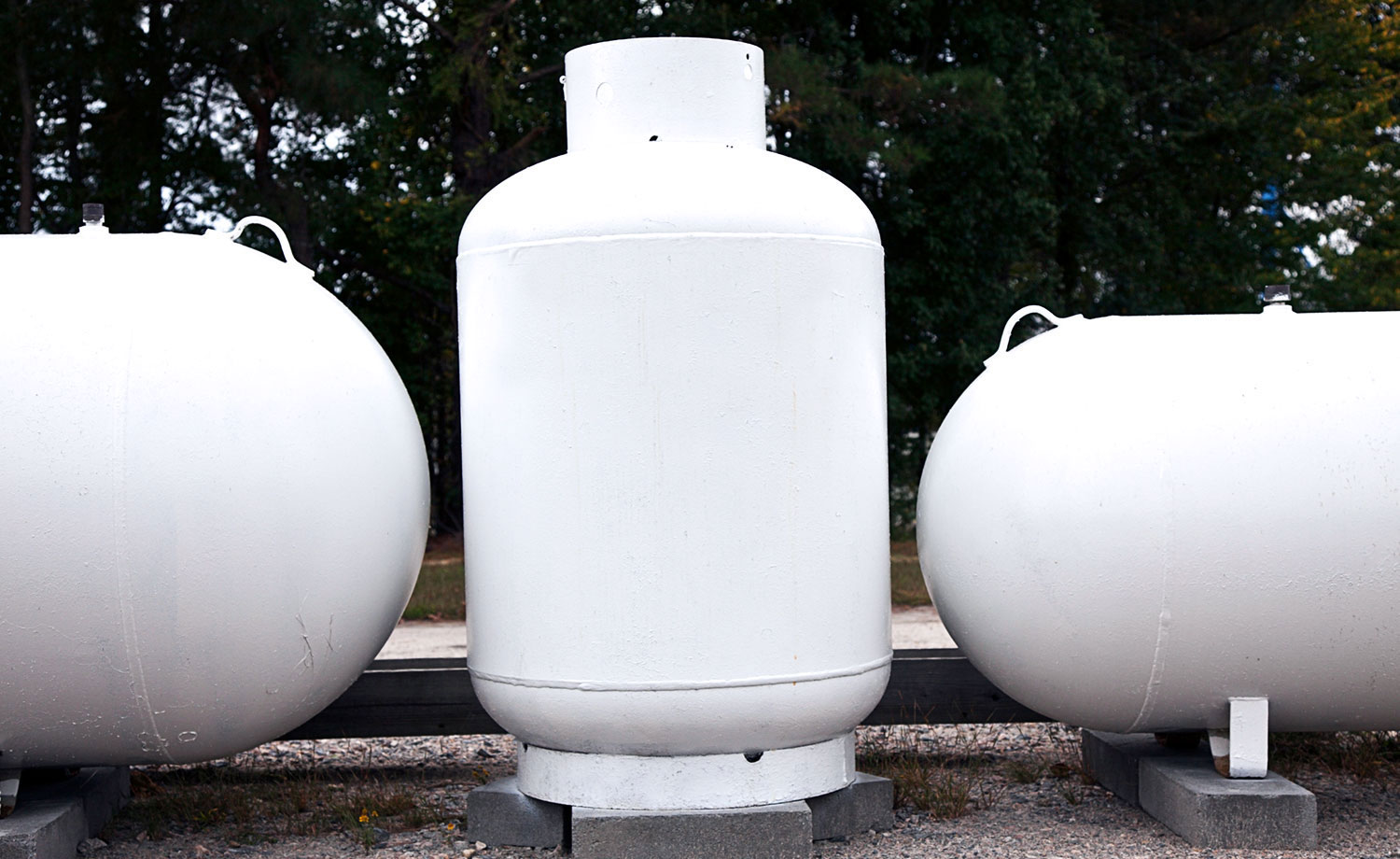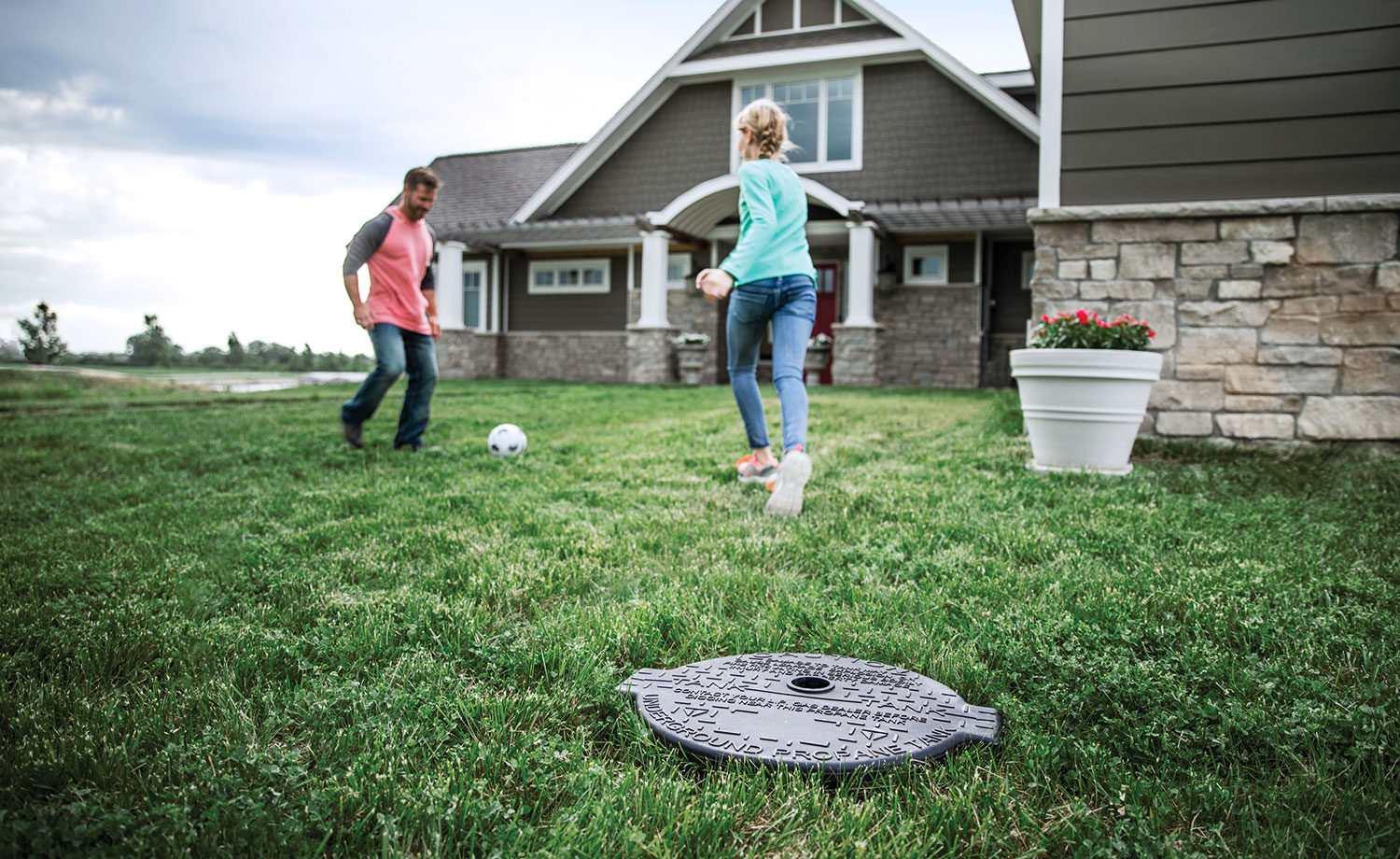
What is a residential propane tank?
Propane is a safe, convenient, and economical alternative to electric, heating oil, or natural gas. Before propane gas can run through your home’s HVAC system and supply your appliances, it has to be converted from liquid propane. Your home’s propane tank is your personal reservoir where liquid propane is stored before it’s converted into gas.
The size and type of tank you select depends on the size of your home, how much power you need to generate for your connected appliances, and winter heating needs. Learn more about the different sizes of propane tanks.
Climate and terrain may also influence your choice of an underground or above-ground tank. Above-ground tanks are exactly that: the propane cylinder is typically installed in your backyard. While they are often more convenient to maintain and less expensive to install, above-ground tanks are not always the best fit for every property or homeowner. Another option is an underground tank; these are specially designed to stay buried in your yard.
Ready to get started? Get a propane quote today!
How does a propane tank work?
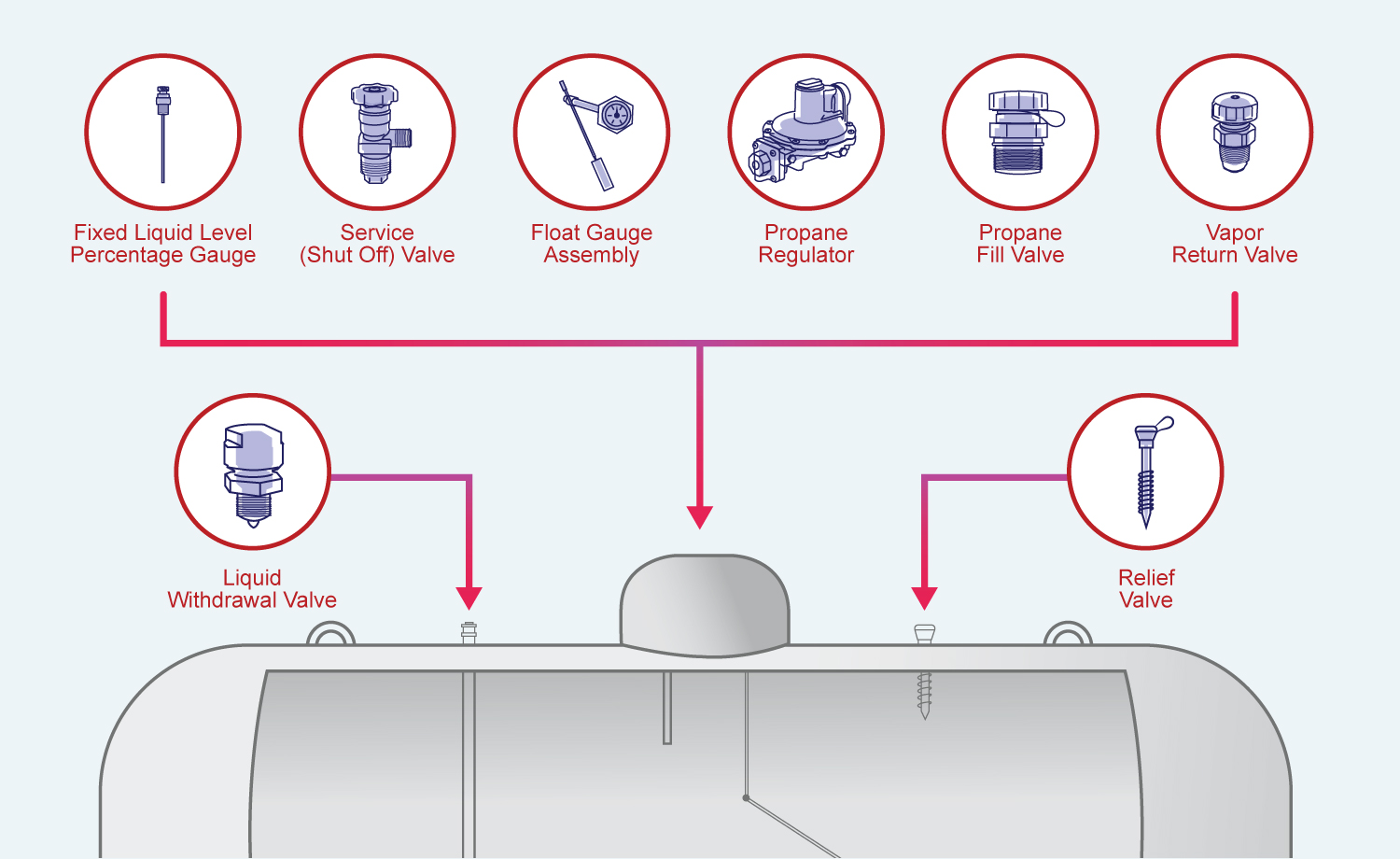
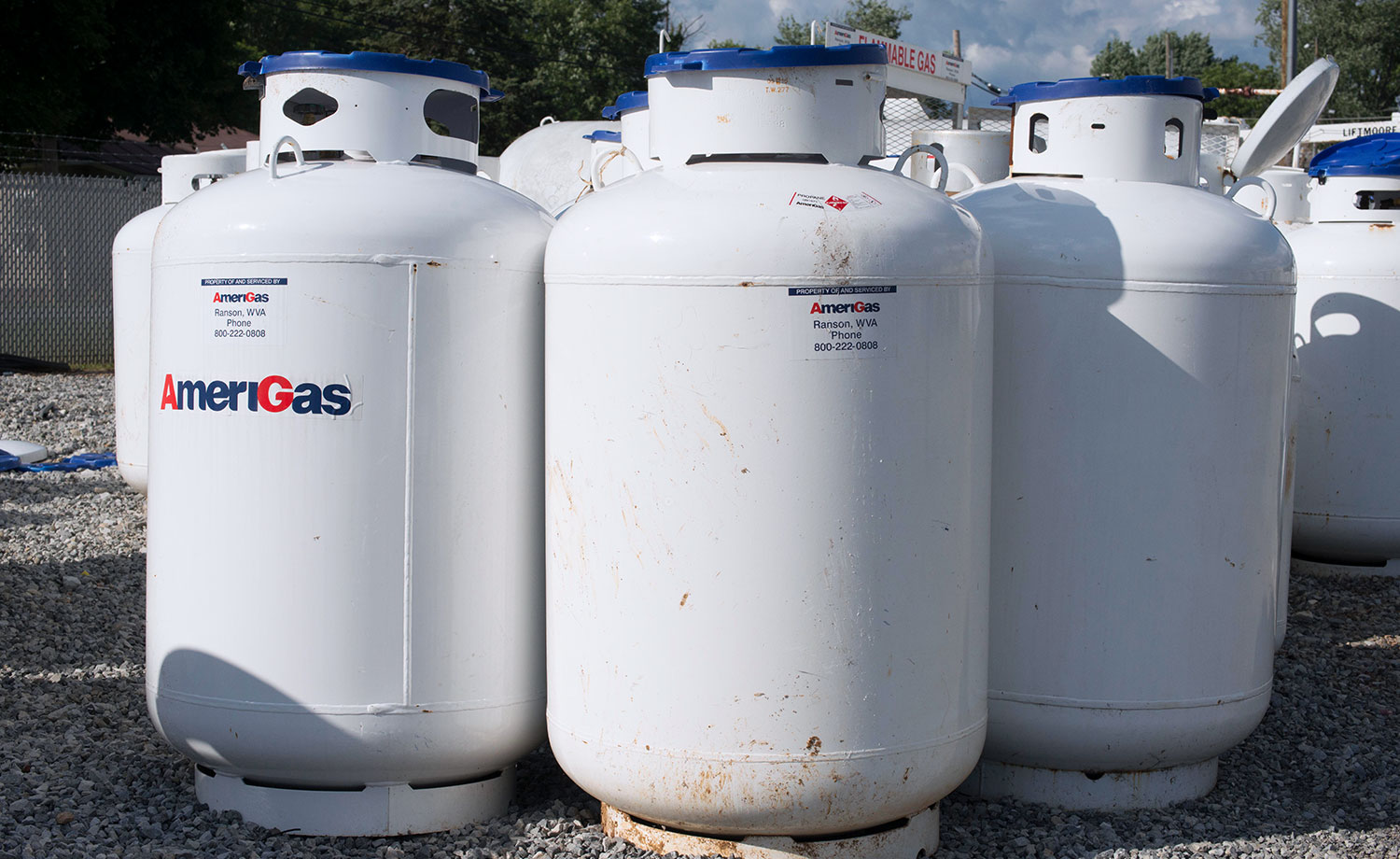
Are residential propane tanks safe?
When you lease a propane tank from AmeriGas, our technicians will conduct periodic safety inspections and check for signs of wear and tear each time we refill it. We also provide you with guidance on how to read the gauge levels and ensure all parts are running properly.
When we install your propane tank, we also comply with National Fire Protection Association (NFPA) regulations. These include setting up the tank at least 10 feet from the home and making sure our technicians can fill and refill it safely. (Check with your municipality for specific local requirements.) Get more details about tank installation safety here.
Getting a quick online quote in minutes is a great way start the process. When the time comes for installation-an AmeriGas installation professional will guide you through safe, reliable, tank installation and maintenance for your home.
How long will a residential propane tank last?
An above-ground galvanized steel tank can last 30 years or more; aluminum tanks can last longer. Underground tanks are typically expected to last 20 to 30 years.
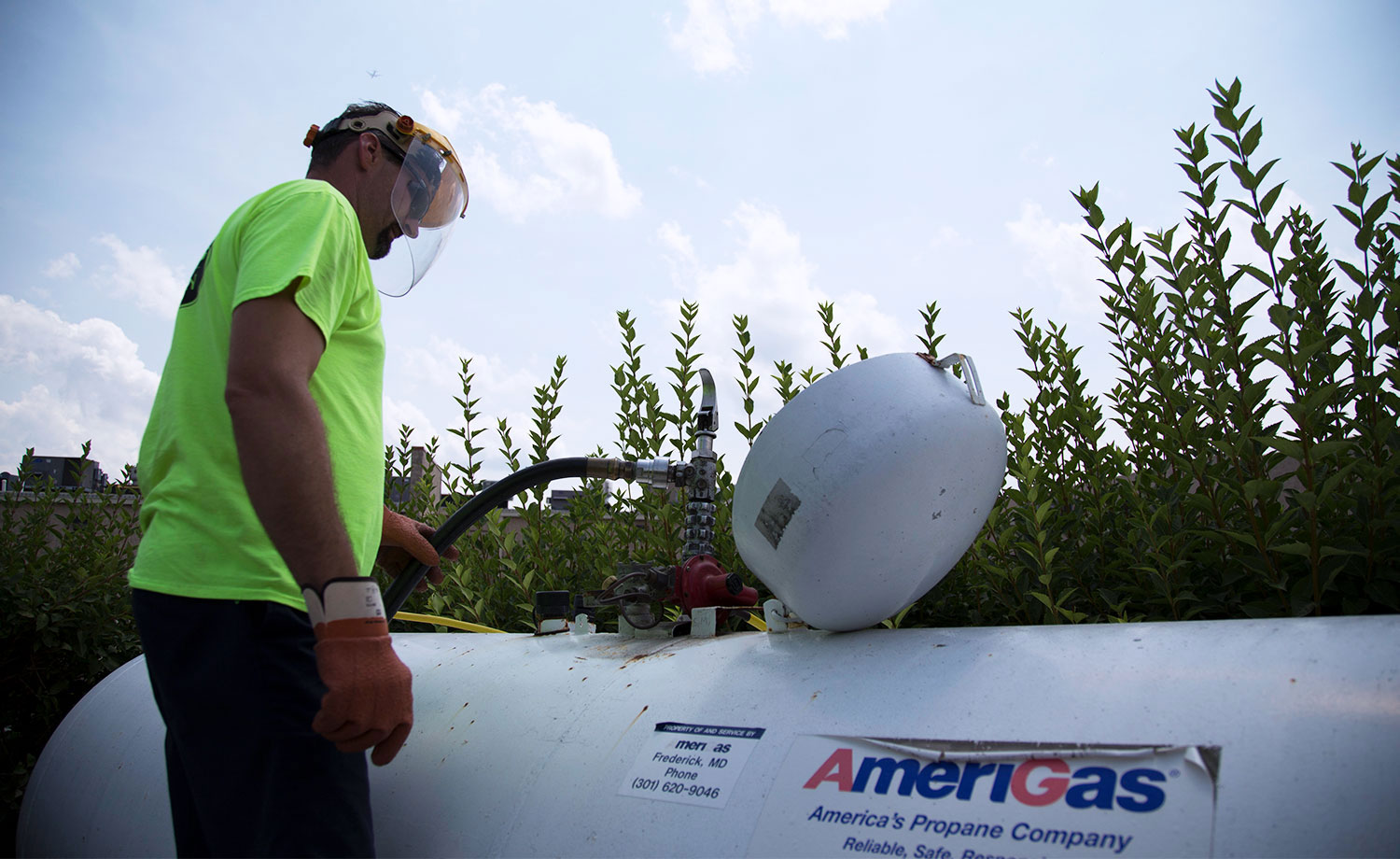
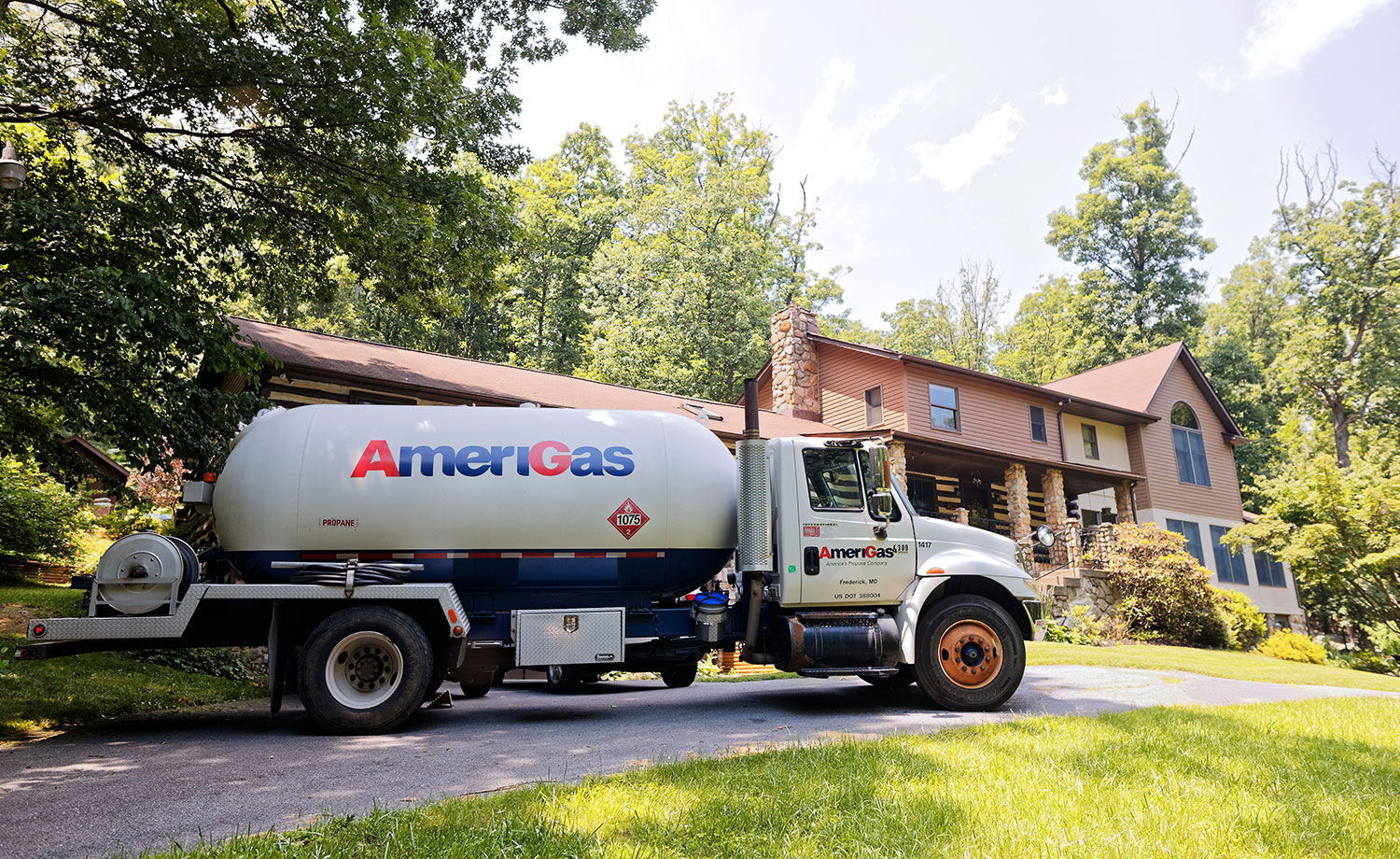
How do I get a propane tank?
You have many options and decisions to make when it comes to obtaining a propane tank: tank size, above-ground versus underground, placement, converting your current HVAC system to propane, and more. When you decide to own a tank, those decisions multiply and extend past installation and through the life of the tank. That’s one reason that we believe in tank rental as a convenient and cost-effective way to handle propane.
When you lease a tank from AmeriGas, you can significantly reduce up-front costs like installation and conversion, as well as maintenance expenses across the life of the tank. You also have the added convenience of regular, reliable safety inspections, care, and fuel service.
Find out what to expect when installing a propane tank or converting to propane.
Ready to explore the benefits of propane?

